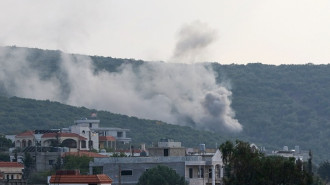Lebanese central bank chief Salameh says he won't resign despite rumours amid economic crisis
Lebanon's Central Bank governor, Riad Salameh, said on Monday he will not be stepping down, refuting rumours that he would quit amid a deepening financial crisis.
Salameh, who has held his post as the head of Banque Du Liban [BDL] for 27 years, told CNBC he will not quit his job amid an economic crisis, the worst the country has seen since its 15-year civil war."You cannot resign … in an environment of a crisis, because it would look like going away from the task you have to perform," Salameh told CNBC in an interview.
"I don't want to resign because I am continuing what I have in my mind, as a strategy to get out of this crisis, and I'm sorry to disappoint those who are spreading rumors on my resignation every day," Salameh said.
Already devestated by the economic crisis a spike in unemployment and a coronavirus pandemic, Lebanon's recent port blast destroyed some 300,000 homes and caused catastrophic damage to the capital, claiming over 200 lives.
Salameh, considered a long-standing pillar of Lebanon's financial system, has faced criticisms in public protests that started last October.
Many protesters have blamed the BDL chief for the crisis that has paralysed the banking system and locked depositors' money in local bank accounts.
Confronted with his role in the crisis, Salameh defended his efforts, saying: "I am the governor who tried, with the means we have, to maintain the system, not to let the system collapse."
Salameh claimed that the central bank, which has been slammed for alleged faulty investments with depositors' money, "didn't create the deficit in the government - we have always called for a reduction in the deficit - and we didn't create the deficit in the current account".
Read also: Lebanon Central Bank governor blames 'systematic campaign' amid criticism of his role in crisis
Lebanon, a tiny country of about 5 million people, is one the most indebted in the world.
Last week, Salameh warned that the government would stop subsidizing basic neccessities once the bank reaches the minimum threshold of its reserves.
The central bank reportedly has around $18 billion in foreign currency reserves - down from $20 billion in April. These reserves are used to support imports of fuel, wheat and medicine at a subsidized price.
Follow us on Facebook, Twitter and Instagram to stay connected





 Follow the Middle East's top stories in English at The New Arab on Google News
Follow the Middle East's top stories in English at The New Arab on Google News

![Algeciras port [Getty]](/sites/default/files/styles/image_330x185/public/75377010.jpeg?h=327453ef&itok=KfCFUEza)
